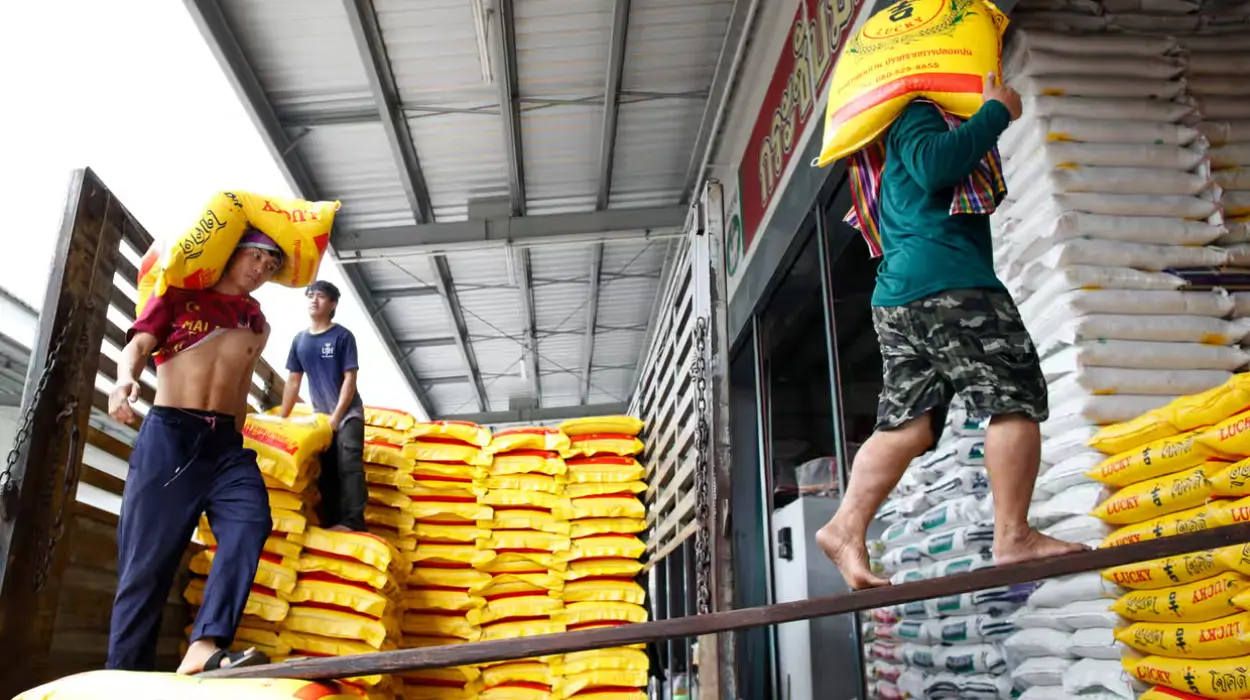UK (Parliament Politics Magazine) – The IMF slashed the UK’s 2025 growth forecast, blaming President Trump’s tariffs, rising inflation, and energy costs, which will impact growth more than Europe.
The International Monetary Fund has downgraded Britain’s economic forecast, warning that the UK will feel the effects of Trump’s trade war policies more severely than European nations.
How will rising inflation and tariffs affect UK’s economic future?
According to IMF projections, the UK economy’s growth will stall by 0.5% in 2025, followed by a further 0.1% dip in 2026. This would leave the UK economy growing at just 1.1% next year and 1.4% in 2026.
The downgrade threatens the fiscal leeway Chancellor Rachel Reeves secured with significant benefits reductions in her spring statement. This may compel her to implement further cuts or raise taxes during her second Budget announcement in the autumn.
IMF views on the impact of Trump’s tariffs
Ahead of the Washington meeting of global finance ministers, the IMF offered a critical evaluation of the US president’s policies, stating,
“We expect that the sharp increase on 2 April in both tariffs and uncertainty will lead to a significant slowdown in global growth in the near term.”
It attributted government costs to Trump’s tariffs, along with higher inflation and soaring energy prices driven by Russia’s invasion of Ukraine.
According to the IMF, while the forecasts were based on current trade policy, “intensifying downside risks dominate the outlook.”
It observed that even after Trump’s “pause,” which temporarily suspended punitive “reciprocal tariffs” on many countries, trade barriers were at their highest level in a century.
The IMF stated,
“Faced with increased uncertainty about access to markets – their own but also those of their suppliers and customers – many firms’ initial reaction will be to pause, reduce investment, and cut purchases. Likewise, financial institutions will re-evaluate their credit supply to businesses,”
adding,
“The combined increased uncertainty and resulting tightening of financial conditions are a global negative demand shock and will weigh on activity.”
It warned that emerging economies are especially vulnerable, as “unfavourable global financial conditions” hinder their ability to service debts.
The IMF added,
“More limited international development assistance may increase the pressure on low-income countries, pushing them deeper into debt or necessitating significant fiscal adjustments, with immediate consequences for growth and living standards.”
The global organisation has raised concerns in its report about the shock waves caused by Trump’s trade policies, warning that the situation could worsen.
Rachel Reeves stance on UK’s economic outlook and trade priorities
Chancellor Rachel Reeves responded to the UK’s downgrade by highlighting that the IMF continued to predict it as the “fastest-growing European G7 economy” in 2025.
She added,
“The IMF have recognised that this government is delivering reform which will drive up long-term growth in the UK, through our Plan for Change. The report also clearly shows that the world has changed, which is why I will be in Washington this week defending British interests and making the case for free and fair trade.”
Ms Reeves will sit down with her US counterpart, Scott Bessent, for the first time on the sidelines of the meeting, with plans to press for lower tariffs on behalf of the UK.
Before her trip, the chances of securing an exemption narrowed, with Kevin Hassett, Mr Trump’s senior economic adviser, suggesting that the 10% tariff was a “baseline,” with any reduction requiring an “extraordinary deal.”
Last week, Vice President JD Vance raised expectations that the US is “working very hard” to achieve a ‘great’ agreement with the UK.
US tariff hikes under Trump
- 25% tariff on all imported cars; car parts to follow in May.
- 25% tariff on imports from countries buying Venezuelan oil/gas.
- 25% tariff on all steel and aluminium imports.
- 10% tariff on Chinese goods, later raised to 20%.
- 25% tariffs on Mexico and Canada – paused, resuming 3 April.


